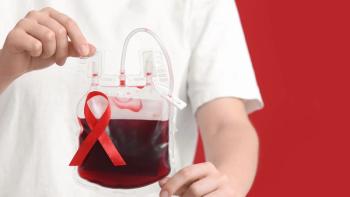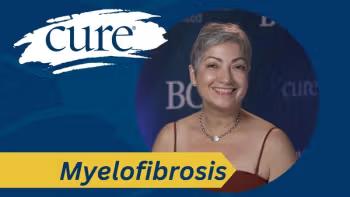
- Hematology Special Issue (September)
- Volume 1
- Issue 2
Helping Children Cope With Your Cancer
An acute myeloid leukemia survivor shares her insight on raising 3 kids while fighting for her life.
Surviving cancer is no easy feat; raising children during this ordeal is even more difficult. When I was diagnosed with acute myeloid leukemia (AML) six years ago, my children were 9, 12 and 14 years old. It wasn’t always (or ever) smooth sailing, but optimism was my armor as I tried to battle my illness and remain a positive example for my kids.
Ironically, my husband is an oncologist. This helped us receive test results quickly but required us to assemble and integrate information at a rapid speed. We didn’t have time for processing. How would we tell the kids that their mother had an illness that she might not survive? Who would take care of them when their mother could barely get off the couch or out of bed? How would we deal with questions like, what if the cancer comes back? How would the kids integrate these thoughts into their lives?
There are three basic approaches to talking to your kids about a life-threatening disease: Tell them everything, nothing or something in between. Telling them everything will frighten them—creating drama when it’s not necessary. Telling them nothing will create a secretive atmosphere, where conversations are whispered and kids are generally confused about what’s going on. Hence, the in-between approach — telling enough to keep them knowledgeable but not so much that it scares them. The entire family does a double take, cries, laughs or just plain ignores it, then takes a collective breath and moves along, most likely in a totally new direction. My kids took the news in stride. They were the tell-me-what-I-need-to-know types. We laid out the facts, answered a few very basic questions and were done.
The saying “It takes a village” applies to caring for kids whose caregiver is going through cancer treatment. Other people truly want to help. It makes them feel better about the situation, because it allows them to express how much they care by actually doing something. So, accept their offers, if not for yourself, then for them. Let them drive your kids places, take them on vacation or just bring you food. If you do not have a good support system, don’t be scared to speak up and tell people you need help. Tell someone at your children’s school or religious center. I know of a mother who was embarrassed to tell the moms of her kids’ classmates about her cancer, then wondered why no one was there to help her. People cannot help if they don’t know that there is a problem.
Both cancer survivors and their families have to deal with living with the fear of recurrence. The cancer survivor, especially if she is the main caregiver, sets the tone for the others. If she feels as though a sword always hangs over her head and is therefore “half living,” then she is not truly living at all. If she can focus on the moment and cherish every day to the fullest extent possible, then she is truly living a rich life, and everything will flow from there for the whole family.
As time goes on and, hopefully, treatment ends, everyone begins to move on. Life may be a new kind of normal with the cancer ever present in the background, but a new normal it is. The entire family should embrace this new normal and integrate it into their lives. Kids will likely need time to process the entire situation and discussions about what happened can take place over time, when they are ready.
Let us also acknowledge that grandchildren are affected when grandparents are diagnosed with cancer. Grandparents are often just one step removed from parents in the caretaking of children, but whether or not grandchildren are close to their grandparents, seeing someone they love suffer is difficult. Grandparents can rely on their own children to explain the situation and can make it known when they feel up to interacting with the grandkids. It’s best to talk to the grandchildren in an honest and straightforward way.
Cancer is serious, and dealing with AML or any type of cancer along with family life will have its ups and downs. Laughter and optimism can go a long way toward helping survivors cope with the changes in their lives. Children are generally resilient, and it’s helpful to include them in what is going on in a way that they can handle. When my children reflect on that time period, they remember people bringing dinners and the outpouring of love more than the difficult times. It has become so integrated into their lives that it is part of our family’s story.
JILL WEISKOPF BRUFSKY, Pharm.D., is a 6-year survivor of acute myeloid leukemia. She is an adjunct assistant professor at the University of Pittsburgh School of Medicine and works at the Cancer LiveWell Survivorship Program of UPMC Hillman Cancer Center. She spends her free time relaxing with her husband and three children.
Articles in this issue
over 8 years ago
Treatment Stages for a Rare Leukemiaover 8 years ago
Bringing Cancer Care Closer to Homeover 8 years ago
Advances Lead to Higher Cure Rate for Rare Leukemia Typeover 8 years ago
A Personalized Era in Chronic Lymphocytic Leukemia Treatmentover 8 years ago
Why Blood Counts Matter in Myelodysplastic Syndrome



